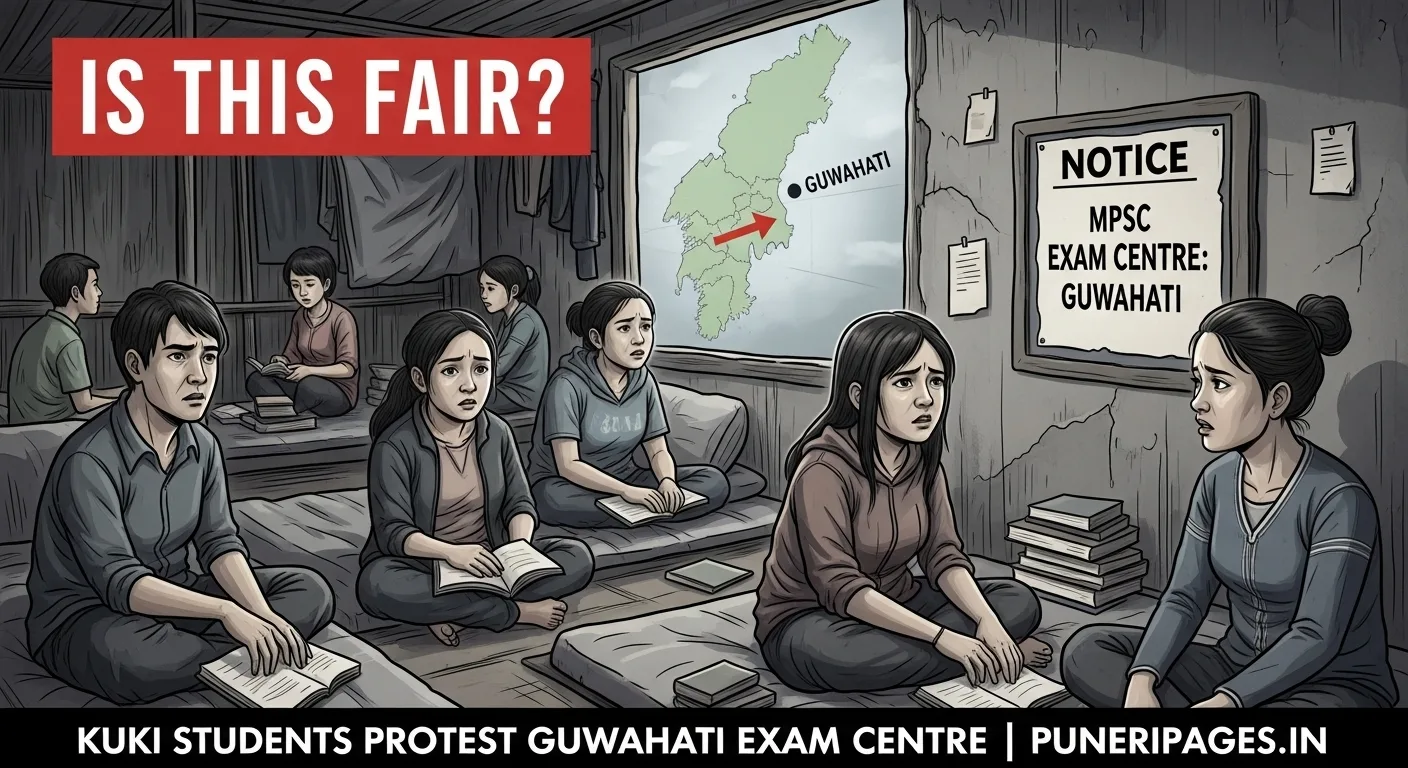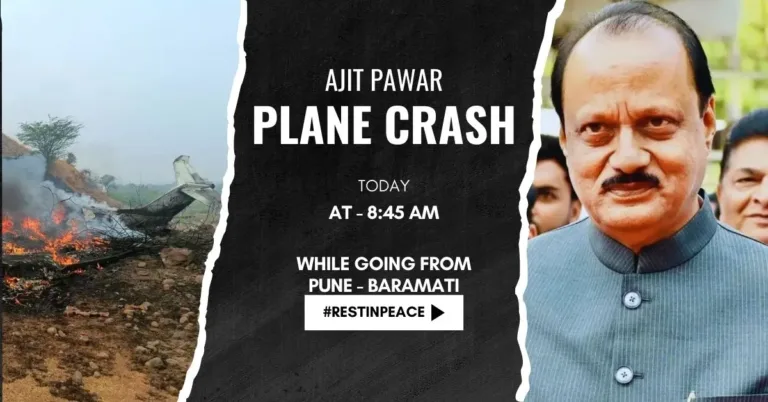
Kuki-Zo students say shifting the Manipur civil services exam to Guwahati ignores their reality. Source: puneripages.in
By Prashant for PuneriPages.in
For Lian (name changed), a 25-year-old Kuki-Zo aspirant living in a relief camp in Churachandpur, the Manipur Public Service Commission (MPSC) examination was never just another test. It was something deeper—a lifeline to dignity, purpose, and a place in a fractured state he still calls home. “Becoming a civil servant was my dream to help rebuild our state,” he tells me quietly, seated on a bamboo stool outside his temporary shelter. “Now, they are asking us to travel hundreds of kilometers to another state just to take the first step. It feels like they are closing the door on us.”
On July 27, the Kuki Students’ Organisation (KSO) staged a protest against the MPSC’s decision to relocate the Civil Services Preliminary Examination 2024 centre to Guwahati, Assam. If you’re sitting far away from Manipur, this might sound like a minor administrative hiccup. But here, for thousands of displaced Kuki-Zo youth, it feels like being erased.
Table of Contents
A State Fragmented by Fear
You can’t make sense of this protest without understanding the geography of fear in Manipur today. For over a year, the state has been torn apart by an ethnic conflict between the Meitei and Kuki-Zo communities. Tens of thousands have been displaced. Towns and neighbourhoods that once mingled are now violently segregated. A buffer zone cuts through the heart of the state like a wound, dividing the Meitei-majority Imphal Valley from the Kuki-Zo-dominated hill districts.
For Kuki-Zo students, returning to Imphal isn’t just difficult. It’s dangerous. It’s not an exam centre they are avoiding—it’s a death zone. So when the MPSC moved the exam to Guwahati, many expected it to offer some kind of alternative for those stranded in the hill districts. Instead, they found the only option was to journey to another state altogether.
More Than Distance: The Weight of Displacement
On paper, Guwahati might seem “neutral.” But for students like Lian, already battling trauma and financial ruin, it’s a wall dressed as a door.
- Financial Strain: “Even if I could somehow manage the bus fare,” Lian says, “where would I stay? What would I eat? I haven’t had steady income in months.” The cost of appearing for this exam—travel, food, lodging, exam materials—is a luxury very few displaced students can afford.
- Lost Documents: Many students lost their certificates, IDs, or academic records in the chaos of evacuation. Replacing them has proven nightmarish. Without proper documentation, even reaching Guwahati might not guarantee entry into the exam hall.
- Mental Health: “We are not okay,” says one student from Kangpokpi. “We are trying to study while living in a camp, sharing one lightbulb with ten people, eating donated rice, wondering if our village will ever exist again.”
Neutral Venue or Quiet Exclusion?
From MPSC’s perspective, the shift might have been about safety. Perhaps they believed Guwahati, outside the conflict zone, could offer a fairer playing field. But fairness on paper isn’t fairness on the ground.
What the KSO and many students argue is this: a decision that looks neutral, but disproportionately hurts the already displaced, is not neutral at all. It’s exclusion in the name of administration. A policy that appears even-handed can still kneecap the very people who need the system to stand for them.
Why This Matters Beyond One Exam
This isn’t just about one batch of students. Civil service exams are more than career opportunities in Manipur—they are among the few stable bridges to power, representation, and social mobility.
If Kuki-Zo youth can’t access these spaces, their communities risk vanishing from the rooms where decisions are made. And in a deeply fractured state, representation isn’t just symbolism. It’s survival.
A Test of the State’s Soul
The tragedy here isn’t just that students like Lian may miss an exam. It’s that an entire community feels increasingly invisible in the very state they call home.
Moving an exam centre sounds small. But in a place like Manipur, every small decision echoes loudly. Every gate closed in the name of policy feels like a future denied.
For Lian and so many others, this fight isn’t just about a test. It’s about whether their dreams still count. Whether the state sees them. Whether the doors to dignity, to service, to rebuilding home—are still open.
Right now, it doesn’t feel that way.






